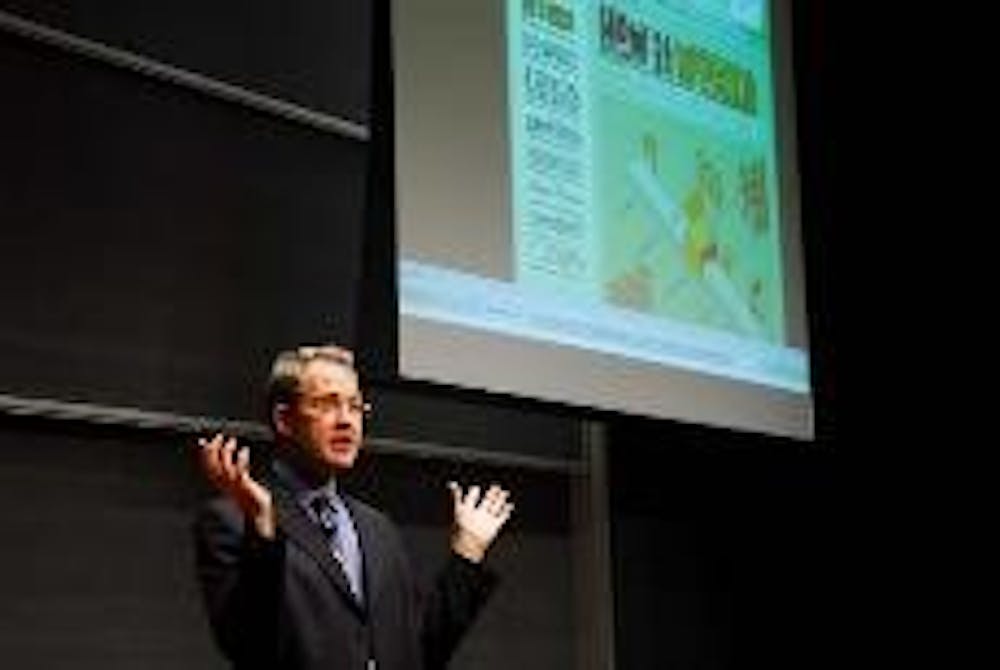It may be a long shot to turn an idea into a marketable product, but that should not be a deterrent to student innovators, a panel concluded yesterday.
In front of an audience of about 40 in Skirkanich Hall's Berger Auditorium, panelists discussed how innovators can improve their odds of success as they take their ideas to the marketplace.
Part of Weiss Tech House's Innovation Week, the event included a keynote address by Karl Ulrich, the chairman of the Operations and Information Management department in the Wharton School and a Mechanical Engineering professor who has founded several companies.
"I don't think the innovation process has changed much since, say, the Renaissance," Ulrich said.
The 21st century has produced some interesting variations on this model, though.
According to Ulrich, the Internet has allowed the development of an idea to be sourced worldwide.
Still, innovation is a long and hard process, Ulrich said. He estimated that the probability of success of an idea at the beginning of the process at less than 1 percent.
Eric Siegel, a Wharton lecturer, opened the discussion by describing some qualities that increase the odds of entrepreneurial success, such as big-picture thinking, dedication and sales skills - but added that these traits can only come naturally.
"I don't know if they can be learned at all," he said.
The remainder of the panel discussion focused on what students can learn in order to achieve entrepreneurial success.
"It involves more than the 'Aha! I solved that problem,'" said moderator David Hsu, a Management professor.
Jared Bernheim, a Wharton and Engineering senior who co-founded IntelliStem Orthopaedic Innovations Inc, said that there is a credibility problem for young entrepreneurs.
He said he formed a board of advisers composed of orthopedic experts to improve the company's credibility.
"You'll realize what you do know and what you don't know, and you'll have to fill in those gaps," said Bernheim, whose company is working on building a better hip replacement.
In an interview after the discussion, Bernheim had nothing but praise for Penn's entrepreneurial atmosphere, saying there are many organizations and people willing to help students start companies.
This year, for example, the Weiss Tech House will be giving away some $80,000 in funding to entrepreneurial Penn students, said Wharton and Engineering junior Dianne Na, student director of the Weiss Tech House.
Ulrich said that students should not hesitate to reach out and contact large companies and experts about their ideas.
"If there are five to six players in an industry and you can give someone a compelling advantage, you can get their attention," he said.
Engineering freshman Joseph Catania said that he would use the information he gained to further his own efforts at innovation.
"As the presentation went on, I thought about my ideas and what I can do to put them on to the market," he said.



